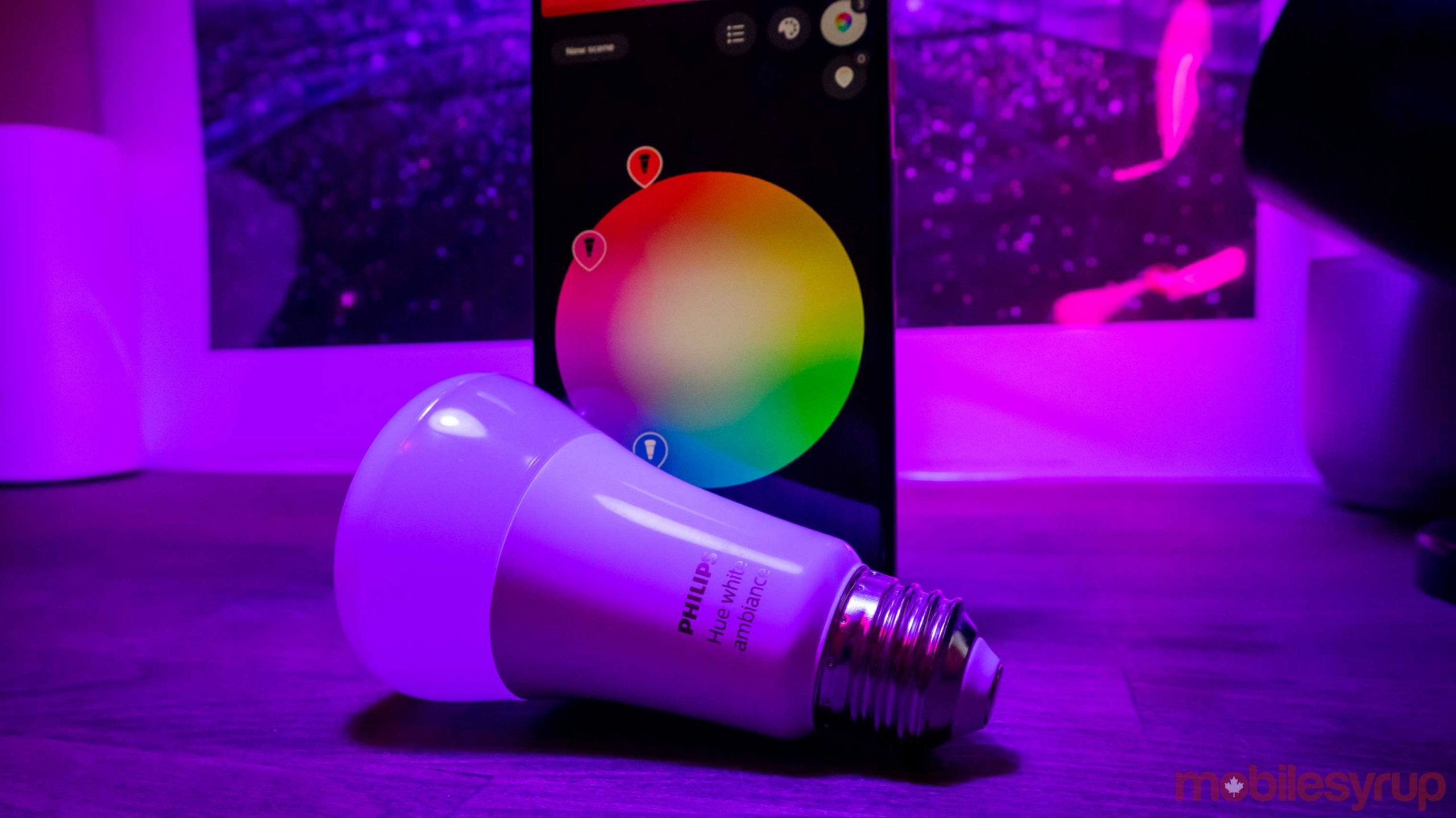
If you’re using a first-generation Philips Hue Bridge, this is definitely bad news.
Hue’s official Twitter account recently tweeted that after April 30th, 2020, no software updates will be released for the “Hue Bridge v1.” Further, compatibility with online services “will be terminated at that time.’
This means if you’re using a gen-1 Hue bridge and frequently turn your lights on/off remotely, that functionality will no longer be possible.
After April 2020 no software updates will be made available for the Hue Bridge v1 and compatibility with our online services will be terminated at that time. The Hue Bridge v1 can still be controlled locally via the dedicated Philips Hue Bridge v1 app. >>
— Philips Hue (@tweethue) March 6, 2020
Your smart lights can still be controlled while you’re in your home. What’s more concerning is the fact that if you’re using a gen-1 Hue Bridge, the hub, and subsequently all lights connected to it, will no longer receive security updates.
In a statement to CNET, Philips said that its four-year-old hub isn’t powerful enough to keep up with its advancements in hardware and software.
“The Philips Hue team keeps working hard to enable new capabilities. The Hue bridge v1 no longer has the resources to guarantee the evolution of the system — from compatibility and quality, to speed and security — thus we decided to end the support for it.”
In another statement, Philips said that it has no plans to drop support for its more recent ‘v2’ bridge. For reference, Hue’s v2 bridge features a square design, while the v1 bridge is a circle.
Not every light in my house features a smart Philips Hue bulb, but several of them do. Thankfully, I upgraded to a gen-2 bridge a few years ago, but I understand why v1 bridge owners are frustrated. The ability to turn lights on and off while not home is useful, and the lack of future security updates is concerning, especially after a flaw was recently uncovered that allowed hackers to control the bulbs.
The Hue line has been around for several years now and is one of the best smart light ecosystems available — this is part of why dropping support for the v1 bridge is such an uncharacteristic move on the company’s part. This is yet another example of why it’s essential to be cautious when purchasing smart home products that companies could potentially drop support for in the future.
MobileSyrup may earn a commission from purchases made via our links, which helps fund the journalism we provide free on our website. These links do not influence our editorial content. Support us here.


